Why Russia is more likely to go nuclear in Ukraine if it’s winning
By Mariana Budjeryn | October 2, 2024
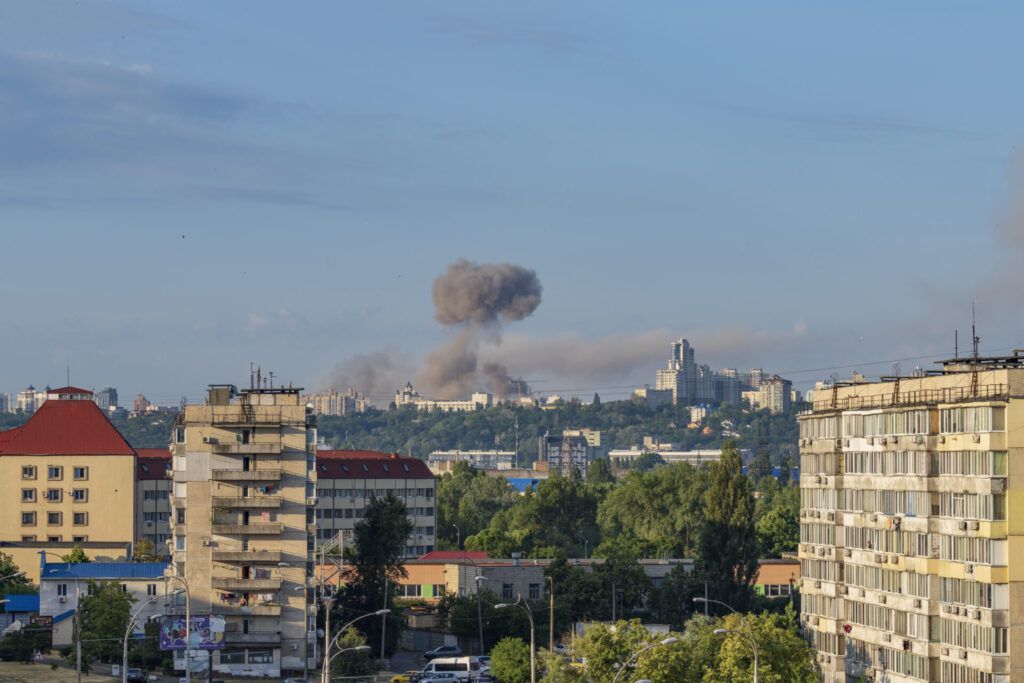 A Russian missile explodes on Kyiv in Ukraine on June 26, 2022. With victory in sight but not yet in hand, Russia may be tempted to launch a nuclear-armed missile on a secondary Ukrainian city and demand Ukraine’s immediate and unconditional surrender. (Photo by uwstas / depositphotos.com)
A Russian missile explodes on Kyiv in Ukraine on June 26, 2022. With victory in sight but not yet in hand, Russia may be tempted to launch a nuclear-armed missile on a secondary Ukrainian city and demand Ukraine’s immediate and unconditional surrender. (Photo by uwstas / depositphotos.com)
Russia’s war against Ukraine has been a conventional conflict. But it is very much a nuclear crisis, too.
Russia, the aggressor, is in possession of the world’s largest nuclear arsenal, including a vast cache of battlefield nuclear weapons. Since the beginning of the war, the Kremlin relied heavily on nuclear threats and signaling to intimidate the West and thwart its military assistance to Ukraine, with some—albeit limited—success. The latest instance in Russia’s nuclear signaling are changes to its nuclear doctrine, recently announced by Russian President Vladimir Putin, that expand permissible scenarios for Russia to resort to nuclear weapons and add ambiguity and interpretative space for the Russian leadership to define whether and when such scenarios occur.
While Russia uses nuclear rhetoric politically, there’s an ever-present danger that it could resort to an actual use of a nuclear weapon in Ukraine.
From the first days of the invasion, the received wisdom has been—and remains—that the most likely scenario for Russia’s limited nuclear use is to reverse an imminent military defeat or possibly break a hurting stalemate in Ukraine. The nuclear scare of October 2022 seems to corroborate the supposition that Russia might resort to nuclear weapons if it’s in retreat. Then, as Ukraine was making rapid gains in liberating the Kharkiv and Kherson regions, Russian military-political leadership allegedly considered using nuclear weapons to thwart Ukrainian advances. In public, Russia concocted a bogus accusation that Ukraine was planning to use a “dirty bomb,” which many feared was creating a pretext for a Russian nuclear strike. The US intelligence community estimated the risk of Russia’s nuclear use in fall 2022 at 50 percent, possibly a historic high.
But has the international community overlooked another scenario—a situation in which Russian nuclear use might not only be possible but even more likely? What if Russia resorts to nuclear use not when it’s losing—but when it’s winning the war?
The nuclear calculus, then and now. Much is still unknown about Russian deliberations two years ago, and what ultimately worked to dissuade Russia from using nuclear weapons then. Likely, it was some combination of US threat of game-changing consequences for Russia, including conventional strikes against Russian military assets on occupied Ukrainian territory, intervention by China that might have come with a promise of increased conventional military assistance, and the dubious military utility of battlefield nuclear use. The nuclear use Russia considered in the fall of 2022 would have been well beyond the pale of Russia’s nuclear doctrine, before and after the announced changes. That reality points to the limited restraint a declaratory doctrine is likely to impose on considerations of whether to use nuclear weapons in a war.
Fears of nuclear escalation remain real, and Ukraine’s Western partners continue to carefully consider escalation dynamics when they decide which weapon systems to release to Ukraine and how to mandate their end use. The current reticence to allow Ukraine to strike Russian homeland with Western-supplied weapons is a case in point. The underlying operating assumption is that Ukraine cannot be too audacious in its resistance, lest it provokes Russia’s nuclear ire.
But what are the nuclear risks of the opposite scenario: when the conventional fighting in Ukraine shifts decisively in Russia’s favor?
Consider that the only use of nuclear weapons in armed conflict so far was by a nuclear power that was on a winning path. The United States decided to drop two atomic bombs on Hiroshima and Nagasaki in August 1945, when Japan was nearly defeated by conventional means, but stubbornly refused to stop resistance and accept US conditions for surrender. While reasons and justifications for the US decision to employ nuclear weapons in Japan are still subject of debate among historians, it is safe to say that the bombings achieved at least three goals. They terminated the war with Japan more quickly, possibly saving the United States from having to mount a costly invasion of the home islands. They allowed the United States to impose the conditions of war termination and post-war settlement—that is, unconditional surrender and US military occupation of Japan. And finally, they made a strong impression on the Soviet Union.
While historical precedents should not be applied uncritically across time and context, they can be mined for insights. The set of incentives for Russia to resort to nuclear use when it is about to win in Ukraine would not be dissimilar from those animating the US decision in 1945. Perhaps, Putin’s mention of Hiroshima and Nagasaki precedents in his September 2022 speech was more than a trope.
A winning Russia might indeed have more to gain and less to lose from a nuclear strike than a retreating Russia.
The possible nuclear scenario, if Russia is winning. Imagine Russia has broken through Ukraine’s defensive lines and is steadily pushing against stubborn if desperate pockets of Ukrainian resistance—a scenario that today looks far more likely than the sudden routing of Russian troops from Ukraine. With victory in sight but not yet in hand, it would be mighty tempting for Russia to launch a nuclear-armed missile on a secondary Ukrainian city and demand Ukraine’s immediate and unconditional surrender or else another major city would be next.
Continued resistance from Kyiv would be suddenly rendered foolhardy, if not suicidal. In this scenario, the Kremlin could terminate the war more quickly, with fewer casualties, and on conditions favorable to Russia. It could impose on Ukraine unconditional surrender, occupation, and other punishing conditions it would feel entitled to after a long and costly war. The prospect of lording over a smoldering radioactive ruin would unlikely be an obstacle for Russia. The wanton destruction of Mariupol, Bakhmut, Avdiivka, Marinka, and other Ukrainian cities by the Russian artillery and bombs before Russia occupied them resembles what could be achieved by a single non-strategic nuclear missile, minus efficiency and radioactivity. And after all, Hiroshima and Nagasaki were rebuilt in just a few years and are perfectly habitable today.
Russia would still likely incur international political costs for breaking the eight-decades-long taboo on nuclear use, but these costs could be better mitigated by a winning Russia than a losing Russia. The United States and NATO allies might not deliver on their threat to impose severe military costs in response to a Russian nuclear strike if Ukraine looks like a lost cause. Opprobrium from China will matter less to a Russia that won its war in Europe. Finally, Russia’s nuclear use is bound to make an impression in NATO capitals and allow Russia to shape the broader post-war settlement in Europe to its advantage.
As long as nuclear weapons exist, their use remains possible. In times of crisis and conflict, their use becomes more probable. Kremlin’s heavy reliance on nuclear rhetoric for political coercion since February 2022 should not obscure the very real danger that Russia might resort to an actual nuclear strike on battlefield Ukraine. As Western capitals balance their support for Ukraine with fears of nuclear escalation, they should bear in mind that allowing Russia to achieve significant military advantage in Ukraine might create greater risk of nuclear weapons use than Russia’s retreat.
Together, we make the world safer.
The Bulletin elevates expert voices above the noise. But as an independent nonprofit organization, our operations depend on the support of readers like you. Help us continue to deliver quality journalism that holds leaders accountable. Your support of our work at any level is important. In return, we promise our coverage will be understandable, influential, vigilant, solution-oriented, and fair-minded. Together we can make a difference.
Keywords: Russia, Russia-Ukraine war, Ukraine, Vladimir Putin, nuclear risk, nuclear taboo, nuclear threats, nuclear weapons
Topics: Nuclear Weapons, Opinion
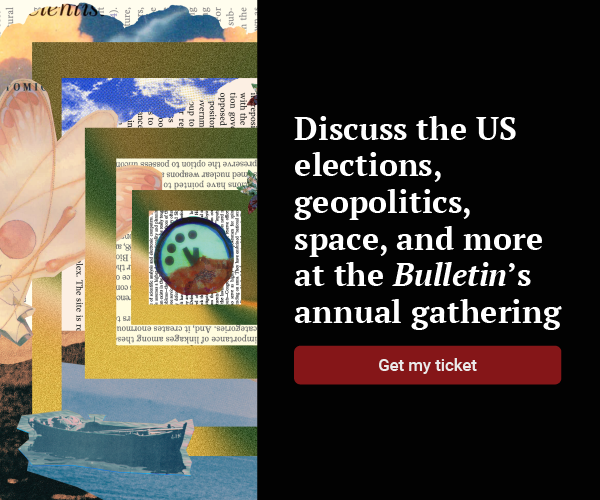


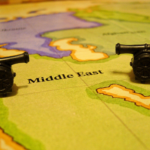
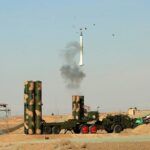

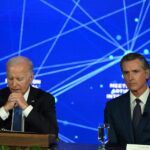

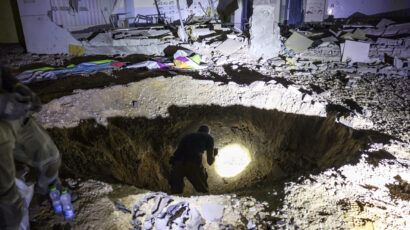
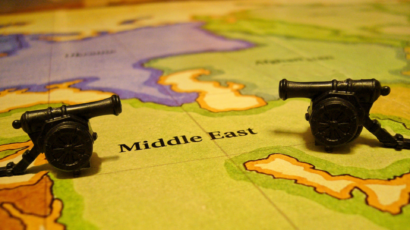
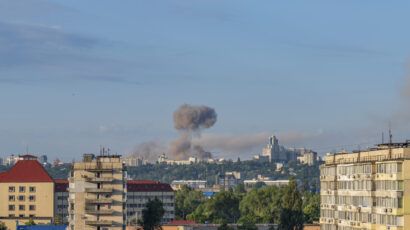


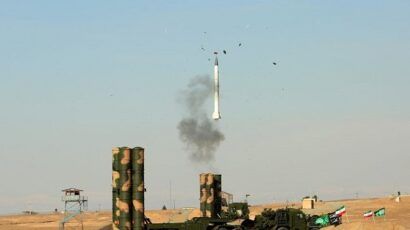
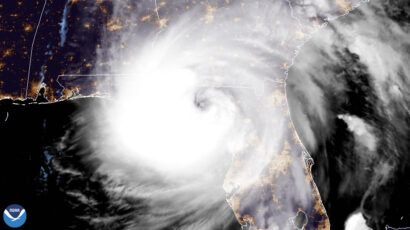

Well, when US used nukes, Japan didn’t see it as a threat, because they felt if we had more of them, we would’ve used them all. It was only because Russia joined did they surrender.
No it is not you are absolutely wrong Japan was almost finished when America dropped the bombs anyway it was due to stubborn resistance after showing them that we won they would not give up. Russia didn’t have a thing to do with it.lol
The quality and degree of motivated reasoning here are such that I would encourage the author to sit down, and carefully consider how the emotional impact of recent events is affecting her ability to function in an intellectually credible, never mind, objective way. It is quite true that the US, or more precisely, US president Truman, did in fact use atomic bombs against Japan even though this was regarded as unnecessary by many significant figures in the decision chain, and Allied high command, including Admiral William Leahy, White House chief of staff and chairman of the Joint Chiefs of Staff… Read more »
I would encourage you to sit down, and carefully consider how the emotional impact of recent events is affecting your ability to function in an intellectually credible, never mind, objective way. You seem to have conveniently forgotten that nuclear powers lose wars all the time and do not resort to nuclear strikes. The Soviet Union lost the Afgan war, Russia lost the First Chechen War, the US lost its Afgan War and also the Vietnam War, France lost in Algeria and there were no nuclear strikes. And these are not the only examples as you well know. Russia is a… Read more »
You’ve raised a crucial point about the enduring cost of nuclear warfare. Even if a nation could achieve a “victory” in such a conflict, the long-term consequences – environmental devastation, economic collapse, and the potential for endless cycles of retaliation – would far outweigh any perceived short-term gains. It’s a dangerous fallacy to think any country could “casually” use these weapons, even in a limited capacity. Historical examples like Hiroshima and Nagasaki tragically illustrate the devastating power of nuclear weapons. But the current geopolitical landscape adds another layer of complexity. In a multipolar world with multiple nuclear-armed nations pursuing their own interests,… Read more »
Our future hinges on the choices we make today. A relentless pursuit of nuclear armament will inevitably lead to its catastrophic use, with every nation acting on the predictions of scholars. Conversely, a genuine commitment to peace can, and will, create a more harmonious world.
However, to reach this peaceful future, scholars must explore optimistic scenarios with the same rigor they apply to analyzing conflict. An intellectual focus solely on war, with no counterbalancing effort towards peace, makes a positive outcome improbable. Without dedicated and sincere efforts to build peace, a future free from conflict will remain out of reach.
Dr. Herman Kahn founded the Hudson Research Institute after he left the Rand Corporation. I suggest everyone read “On Thermonuclear War” and “Thinking About the Unthinkable”. The Russians have as well as the Chinese. Every sane scientist and nuclear weapons expert should petition their governments, write articles, publish books and appear on media to place their efforts into pursuing peace, trade and US policy of moving NATO Eastward and readying for an “inevitable” war with China is self-defeating to all parties and does not serve the civilian populations of their respective nations. I knew Herman Kahn (Dr. Strangelove) and I… Read more »
Although I applaud the author for raising one more time this issue, which poses a real life danger, I do not agree with her conclusions. The historical comparison is not applicable here, as the motivations for US to drop two bombs in Japan weren’t military but to send a strong political signal. Which is not the case at hand in Ukraine. The only real scenario for tactical weapons use would be a stalmate, but it happened already and Russia didn´t resorted to them. So, the other possible scenario has more to do with NATO and mainly US meddling in this… Read more »
my thought on US atomic attack on Japan was not so much to get Japan to surrender but to signal to a future potential adversary, namely USSR, that we had this destructive device and we are the big boy on the block. Truman did not know they had been given information on how to build their own device and were well on the way of doing just that. to the gist of this article, come 16 Oct, it will have been 62 years since start of Cuban Missile Crisis of 16-23 Oct 1962. Russia did “back down” and did remove… Read more »
I think you are framing Russia into a posture that suits US political perspectives but not necessarily representing why it is leveraging nuclear assets in this war. The objective is not to escalate to nuclear war or create an out-of-control chain reaction that ends up that way. Has Russia changed its doctrine? Putin’s words have not changed much in 3 years, and he uses his henchmen and public media figures to inject bravado into the news: sometimes threatening Ukraine, sometimes the UK, and sometimes the US. Ambiguity is the razor’s edge of strategic nuclear deterrence. Putin may not have a… Read more »
Yes Ted to answer your question yes Russia has changed its nuclear doctrine this statement did not age well for you bud.
I hope that someone will discuss whether an air-burst tactical nuclear warhead, while releasing far fewer radioactive nuclides than a ground-burst warhead, in eastern or southeastern Ukraine would lead to radioactive products that contaminate the southwestern Russian Federation. Chernobyl accident was in northern Ukraine and released radioactive fission byproducts in Scandinavia and northeastern Russia. I don’t have the info to judge that. But if true, that might inhibit Putin from crossing the nuclear threshold.
What is imagined as a Russian use of a nuclear weapon in Ukraine? Presumably a Hiroshima/Nagasaki type of use i.e an air-burst with no local fallout, in weather such that the plume of fallout will be over some planned part of Ukraine rather than blowing into Russia. . . .
I think anyone talking about a Russian A-bombing of Ukraine really should give us some idea of what area is assumed to be nevertheless rendered useless, not worth capturing.
I believe Russia might resort to tactical nuclear strike if their “Special Military Operation” is failing and since they are making progress on the front then the likelihood is very remote. Its also not guaranteed that the use of a tactical nuclear strike will dissuade Ukrainians from continuing to resist the invasion. In view of Ukraine’s daredevil resistance from the start of the till now, a tactical nuclear strike wouldn’t stop the war but probably change its course. The Ukrainians might resort for example to guerilla warfare or terrorist attacks both in Ukraine and Russia. All said, no body can… Read more »
Going nuclear against a country that doesn’t have nukes is a sign of defeat. Sure it happened in 1945 but those were different times, nukes were not widespread and it was a war around the globe! Putin uses even tactical nukes not only will he be in violation of the 1994 Budapest Accords they signed but Putin surely be prosecuted as a war criminal! After all winning in Ukraine is not an existential threat for Russia!
Hi everyone, first thanks for the article even though it looks strongly biased by origin of the author and MSM Also many thanks for interesting voices in the discussion. First I would like to comment some of the ideas presented in the article 1.The US intelligence community estimated the risk of Russia’s nuclear use in fall 2022 at 50 percent, possibly a historic high. My question to the author: what is the source of this estimate, was it only a repetition of the CIA based sources? If so I would firstly consider this as propaganda-kind of statement rather than evidence… Read more »
To argue that Russia is “more likely” to go nuclear if winning than if losing is to ignore Moscow’s stated policy: that it will use nukes if vital interests are threatened (Washington has the same policy). Not only do such arguments push the Doomsday Clock nearer to midnight, but help ensure midnight will strike. It is dangerous to ignore the stated scenarios in which nuclear powers will use their weapons. This profound denial makes nuclear Armageddon a self-fulfilling prophecy. Throughout the Cold War proponents of nuclear deterrence doctrine argued that nuclear weapons kept the peace: neither side would initiate a… Read more »
What a bizarre perspective, especially here, that the proposed Russian use would positively impress the west.
I think it would cause the west to “roll up” Russia entirely.probably with nontrivial if quiet support from India and China.